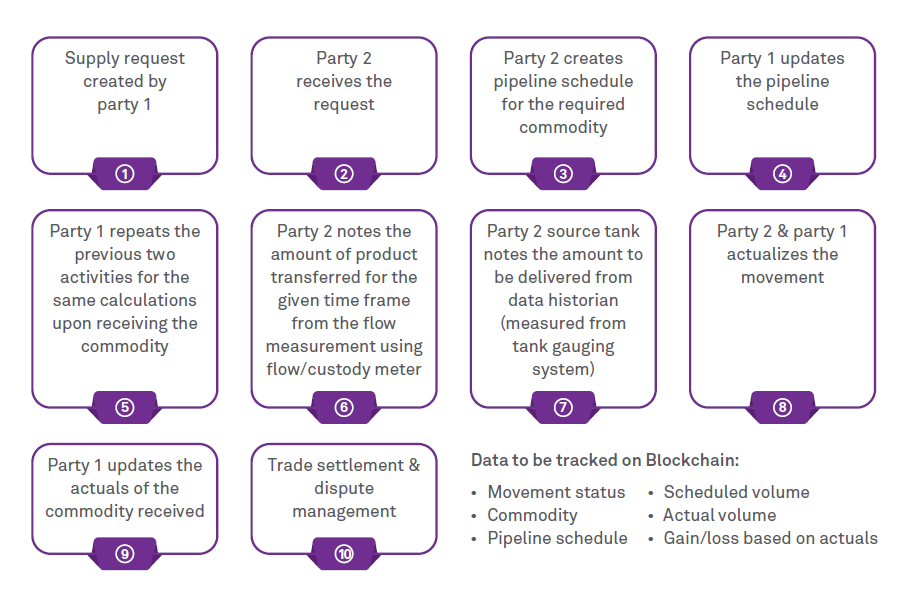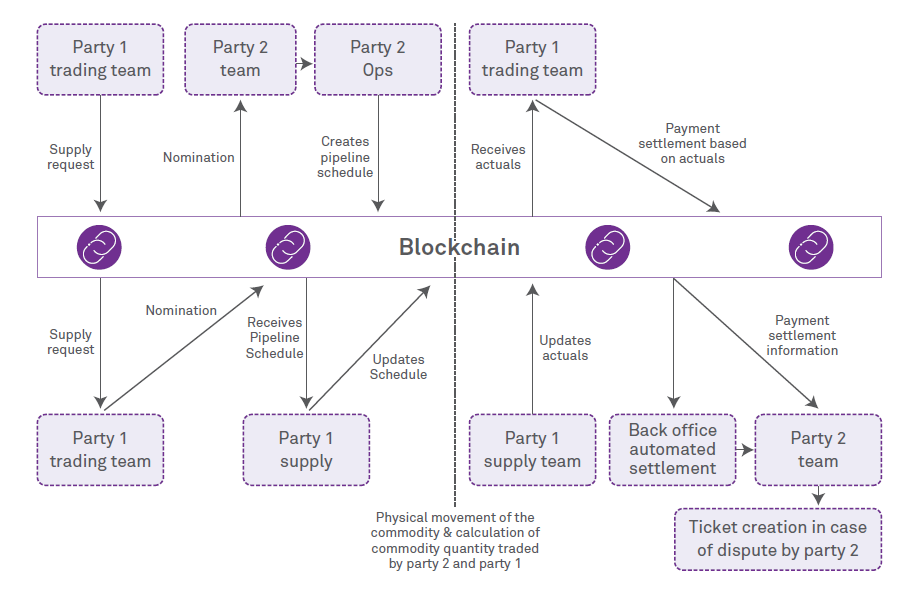This article discusses:
- How Blockchain technology can be used in the oil custody transfer process
- Blockchain platform model
- Examples of how Blockchain is being used to lower cost and improve user experience transactions where a product, such as oil or gas is transferred between several partners and stakeholders, the challenge is to ensure transparency in the provenance, ownership, quality and volume at each transfer point in the value chain.
Typically, in the oil industry, the value chain would include well owners, producers, subsidiaries and joint ventures of producers, royalty managers, carriers and pipeline owners, downstream operators, regulators and governments. Each party measures product volumes and other critical parameters individually at different points of time. They use processes, tools and systems calibrated to meet their industry standards and protocols. Often,
the outcome of this is conflicting data and contractual disputes between parties, resulting in expensive rework, delays and the overheads of resolution management. In view of rising operational costs and regulatory pressure, there is an urgent need to set up a solution that uses a consistent interpretation of contracts and transparently provides oil measurement information on an independent and trusted platform. Blockchain technology offers that solution. It can create a robust, reliable and cost-effective solution to what has historically been an intractable problem in the oil custody transfer process.
Let’s first look at the “as-is” process between Party 1 and Party 2 in oil custody transfer (see Figure 1). The amount calculated in Step 6 and 7 should be within the prescribed tolerance for Party 2. If it isn’t, it is Party 2’s problem and needs to be rectified by them. The same holds good for Party 1 in Step 8. After Step 9, the amounts are tallied and should be within the prescribed tolerance limits. If not, a dispute is raised.






